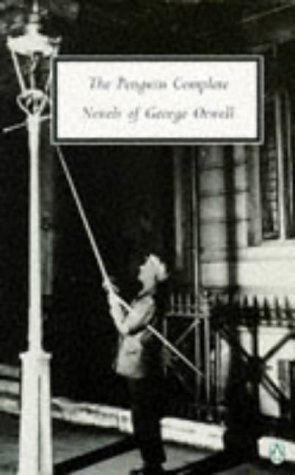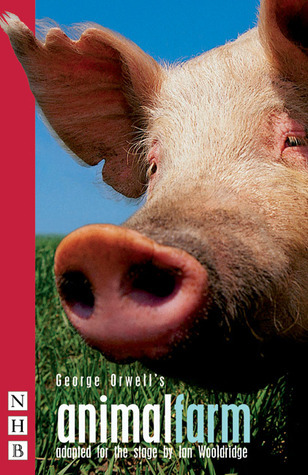
George Orwell Omnibus: The Complete Novels: Animal Farm, Burmese Days, A Clergyman's Daughter, Coming up for Air, Keep the Aspidistra Flying, and Nineteen Eighty-Four
Book Description
Imagine a world where truth is a weapon, and freedom hangs by a thread. George Orwell's Omnibus delivers a stunning collection of his complete novels, each a gripping exploration of society’s dark underbelly. From the stark allegory of *Animal Farm* to the haunting dystopia of *Nineteen Eighty-Four*, each tale reveals the battle between oppression and the human spirit. Feel the suffocating weight of conformity, witness the desperate search for individualism, and uncover the devastating consequences of power unchecked. As the pages turn, the question looms: how far will you go to preserve your humanity in a world determined to strip it away?
Quick Book Summary
The "George Orwell Omnibus" brings together Orwell’s six classic novels, offering a piercing examination of power, society, and the individual’s place within oppressive systems. From the allegorical dismantling of totalitarianism in "Animal Farm" to the stark, nightmarish vision of surveillance and thought control in "Nineteen Eighty-Four," Orwell unflinchingly dissects social injustice, propaganda, and the erosion of truth. His works chronicle not only the crushing weight of authoritarianism, but also the fragile, persistent spark of resistance and individual conscience. The novels traverse colonial Burma, drab English suburbs, and dystopian futures, exposing the compromises, illusions, and ironies of everyday life. Orwell’s relentless critique of conformity, materialism, and the abuse of power resonates across generations, challenging readers to confront the boundaries of freedom, integrity, and hope.
Summary of Key Ideas
Table of Contents
Totalitarianism and the Abuse of Power
Orwell’s novels are united by a central preoccupation with totalitarianism and the consequences of absolute power. In "Animal Farm," the allegory of a farm taken over by animals serves as a biting critique of the Soviet regime and the cyclical nature of oppression. "Nineteen Eighty-Four," his most celebrated dystopia, imagines a world dominated by thought control, illustrating how language, surveillance, and fear can annihilate individuality and reshape reality. Both novels serve as warnings about the seductive dangers of authority left unchecked, where ideology becomes a tool for cruelty and manipulation.
Alienation and the Search for Identity
Alienation and the quest for meaning reverberate through works like "Burmese Days," "A Clergyman’s Daughter," and "Keep the Aspidistra Flying." Orwell explores the isolation experienced by outsiders—whether in colonial Burma, where prejudice and moral decay reign, or among the disenchanted English lower-middle class. His protagonists are often intellectuals or sensitive souls adrift in systems indifferent or hostile to their ideals. Their struggles to assert their identities illuminate the psychological toll of rigid social hierarchies and oppressive expectations.
The Manipulation of Truth and Language
Central to Orwell’s oeuvre is the manipulation of truth and language. In "Nineteen Eighty-Four," newspeak and doublethink become weapons wielded to distort reality and suppress dissent. "Animal Farm" similarly shows how propaganda and revisionist history facilitate control, as the commandments shift and memory is erased. Across his novels, Orwell interrogates how those in power shape perceptions of reality, erode trust, and hollow out the very basis of free thought, underscoring the importance of language as a battleground.
Resistance and Individual Conscience
Despite bleak circumstances, Orwell’s characters often demonstrate the silent, stubborn spark of individual conscience. In "Coming Up for Air," the protagonist’s nostalgia offers a modest form of rebellion against the onslaught of modernity. In "Keep the Aspidistra Flying," Gordon Comstock tries—vainly, but defiantly—to reject the tyranny of money. Orwell does not romanticize resistance, but portrays it as painfully limited, often crushed by circumstance, yet essential for the survival of dignity and selfhood.
Social Class and Economic Despair
Orwell’s novels grapple with social class and economic hardship, especially in their British settings. The stifling effects of poverty, the inadequacies of charity, and the dehumanization of capitalist society are vividly rendered, notably in "Keep the Aspidistra Flying" and "A Clergyman’s Daughter." Through acute social observation, Orwell reveals interplay between economics, morality, and aspiration, exposing how societal structures conspire to repress the vulnerable while perpetuating inequality. Ultimately, he urges readers to recognize the systems that bind them—and to cherish the fragile possibilities of freedom, compassion, and rebellion.
Download This Summary
Get a free PDF of this summary instantly — no email required.





